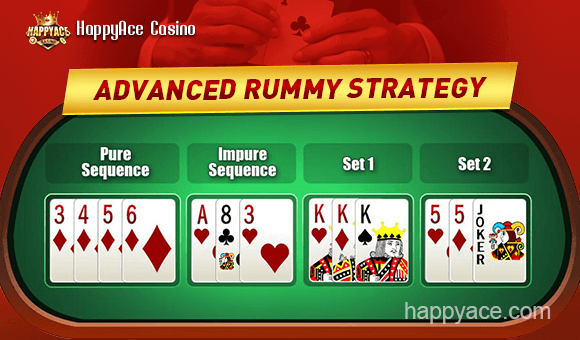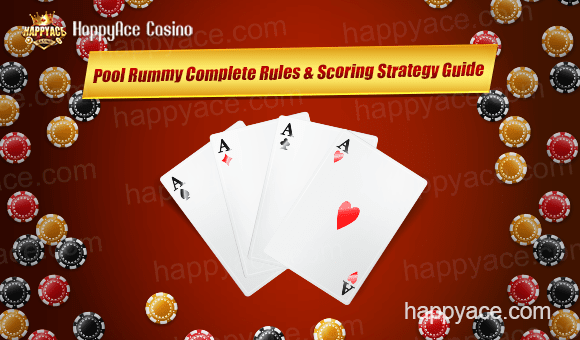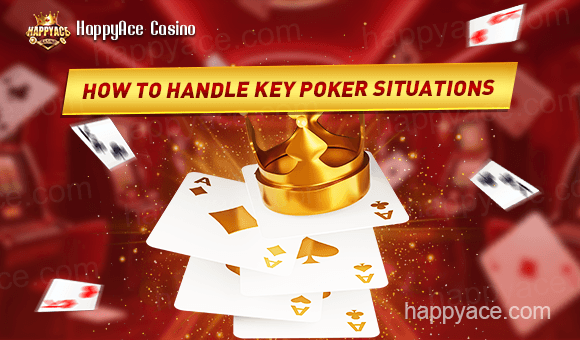While new players may see Pool Rummy as a game of luck, experienced players know that consistent success requires much more than chance. It demands a clear strategy, discipline, and the ability to adapt to changing situations. In this comprehensive guide, we'll explore the essential strategies that can help you stay ahead of your opponents. If you'd like to learn more about the rules and gameplay, you can also visit the Pool Rummy section.

What Is Pool Rummy?
Pool Rummy is a popular variant of the 13-card Rummy game. The primary difference lies in its points pool elimination system:
- Each player begins with zero points.
- At the end of every round, players who fail to form valid sequences and sets accumulate penalty points based on the value of their unmatched cards.
- When a player's cumulative score reaches a set threshold (commonly 101 points or 201 points), they are eliminated from the pool.
- The last remaining player in the pool wins the game.
Why Strategy Matters More Than Luck
Although the shuffle and deal involve randomness, Pool Rummy is far from a pure game of chance. Over many rounds, strategy outweighs luck. Winning players typically excel in the following areas:
- Prioritizing sequences (especially pure sequences).
- Managing high-value cards effectively.
- Observing opponents' picks and discards.
- Balancing risk with point management.
- Using psychological tactics and patience.
Key Strategies for Pool Rummy Success
1. Secure a Pure Sequence Early
In Pool Rummy, you cannot declare without a pure sequence. This makes it your number-one priority.
- If you are dealt with cards that could form a sequence (e.g., 5♥, 6♥, 7♥), preserve them.
- Avoid breaking potential sequences early in the game.
- A quick pure sequence reduces penalty risks significantly.
Face cards carry heavy penalty points when left unmatched. Keeping them too long can be disastrous.
- If you cannot form a sequence quickly, discard them early.
- However, if they can fit into a sequence, hold them strategically.
- Consider your overall score: if you're close to elimination, safety comes first—drop them.
Rummy is a game of information as much as cards. Pay attention to:
- Which cards your opponents are drawing from the open pile.
- Patterns in their discards—these give clues about their target sequences.
- Avoid discarding cards they clearly need.
- Use deceptive discards to mislead opponents into believing you're working on a different sequence.
Your approach should change based on your score and position:
- When leading: Play safe. Avoid unnecessary risks that could add penalty points.
- When trailing: Take calculated risks. Holding high cards might pay off with a big hand, but always monitor your points.
- Close to elimination: Drop risky cards immediately, even if it weakens your hand. Survival is the priority.
Poker players aren't the only ones who use bluffing—Pool Rummy rewards psychological play as well.
- Conceal your intentions by discarding misleading cards.
- Use quick moves to project confidence, or delay occasionally to throw off opponents.
- Observe body language and timing in offline games, or betting patterns in online tournaments.
In online Pool Rummy, time limits per move are standard. Fast, confident decisions give you an advantage:
- Plan your sequences in advance to avoid hesitation.
- Don't reveal uncertainty by hovering over a card for too long.
- Quick discards can also pressure opponents into making mistakes.
Don't Chase Unrealistic Hands
Many beginners chase large sets or long sequences and end up accumulating penalty points. Focus on survival, not flashy wins.
Be Flexible
Adapt to changing hands. If one strategy isn't working, shift to a new approach quickly.
Use the Drop Option Wisely
Most platforms allow you to “drop” a hand early, taking a smaller penalty rather than risking a huge loss. This is often a smart defensive move.
Control Your Bankroll
In real-money Pool Rummy, never risk more than you can afford. Set strict limits to protect yourself.
Online Pool Rummy: Things to Keep in Mind
As Pool Rummy grows in popularity online, thousands of players now compete daily. But online play comes with unique considerations:
- Choose licensed platforms Choose licensed platforms to ensure fairness and secure payouts.
- KYC and withdrawal processes should be transparent and smooth.
- Beware of misleading ads promising unrealistic winnings.
- Play responsibly: avoid excessive gaming and maintain balance with other activities.
Long-Term Thinking: The Mindset of a Winner
Winning Pool Rummy consistently requires more than mechanical skill. It's about adopting the right mindset:
- Patience: Not every hand will be ideal. Learn to wait for opportunities.
- Resilience: Don't let one bad round throw you off. Think long-term.
- Adaptability: Each table and each opponent is different. Adjust your style accordingly.
- Emotional control: Stay calm, whether you're winning or facing elimination pressure.
Pool Rummy is a game of endurance, skill, and strategy. Unlike short-form Rummy, where one lucky hand might secure victory, Pool Rummy rewards the players who can outlast their opponents across multiple rounds.
By following the strategies outlined above—securing pure sequences, managing high cards wisely, reading opponents, balancing risk and safety, and using psychological tactics—you can significantly improve your chances of success.
Remember, survival is just as important as winning a single round. Approach the game with discipline, stay alert to your opponents' moves, and above all, enjoy the process of mastering one of the most engaging Rummy formats available today.
If you're ready to put these strategies into practice and explore the game further, head over to the Pool Rummy section for more insights.











